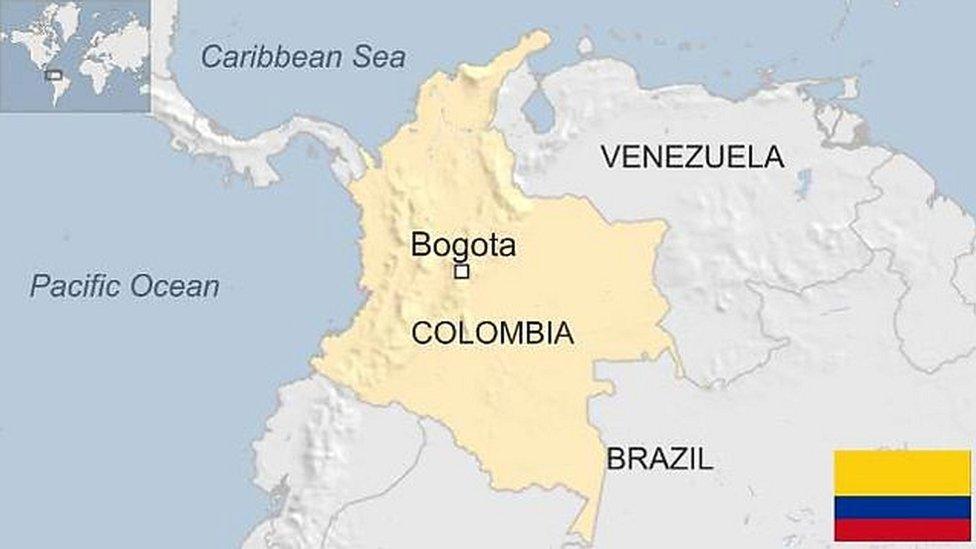The UK agents tackling Colombia's drug barons
- Published
Ian Pannell was allowed to look around one raided cocaine lab before the authorities blew it up
British law enforcement officers have been working with drug officers in Colombia since 1989 in a bid to stem the flow of cocaine into the UK. For the first time, the National Crime Agency has provided a glimpse of the work it is doing there.
In the early hours of the morning, covered by darkness, a group of anti-narcotics special forces surround a cocaine-producing lab in a mountainous and forested area at Norte de Santander, north-eastern Colombia, close to the border with Venezuela.
They wait silently while a constant drizzle falls on them.
At about 5am, when the lab workers start to arrive, the officers raid the site - a complex of some five big green and black canvas tarpaulins set up within the dense forest - filled with big cans of chemicals, microwaves, a press, and other devices used in the cocaine production process.
They manage to capture one man and collect evidence - among it the carved plastic slates used to brand the cocaine bricks - before blowing the lab up with C4 explosives.
'Good result'
The intelligence needed to find the lab and carry out the raid was gathered with help from officers of the UK's National Crime Agency (NCA) working in Colombia.
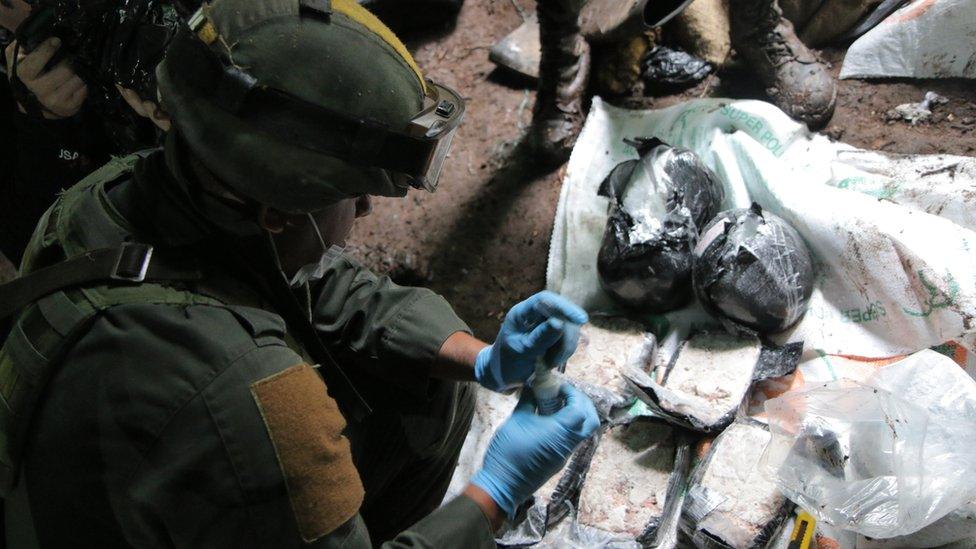
Colombian police raided a cocaine lab near the Venezuelan border with help from UK officers
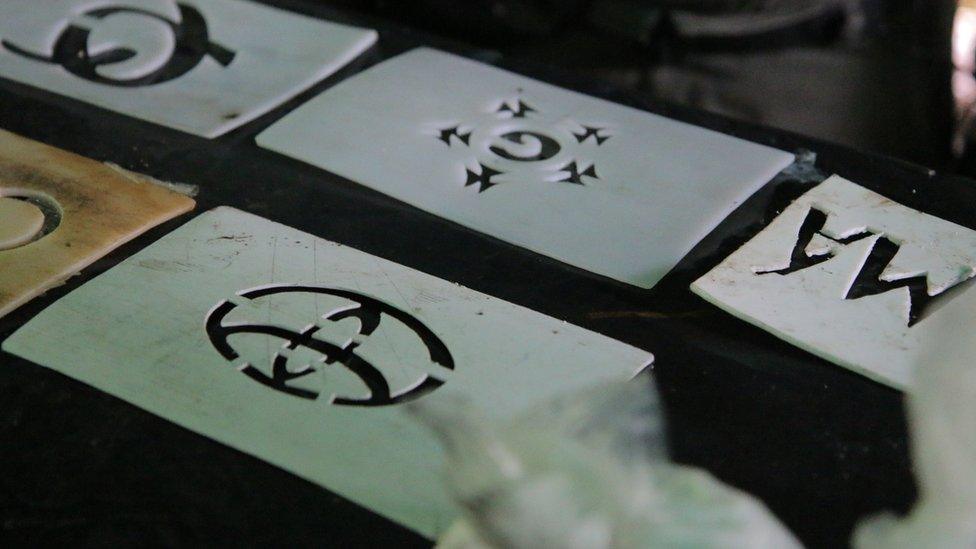
Officers seized plastic stamps used to brand the cocaine blocks
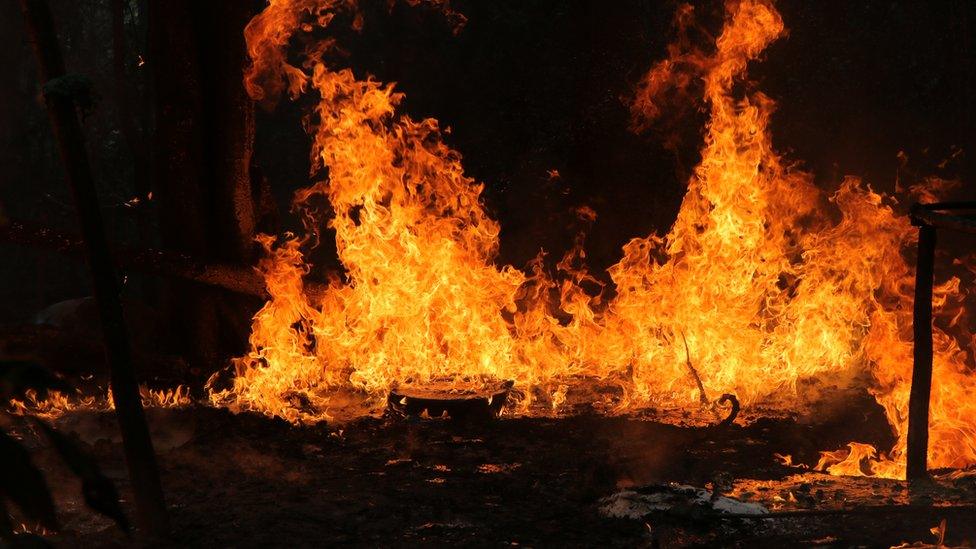
The cocaine lab was blown up with explosives after the raid
One of the NCA's officers, whose identity cannot be revealed, was at the raid.
"Very happy, yeah, very happy after today. We've had a good exchange of intelligence with neighbouring countries and other NCA officers in other countries, so yeah, it's been a good result," he said.
"It just means that the flow of cocaine going into the UK is lessened. I mean, obviously, this is a small lab and this happens all the time but the more that we can do here working with the anti-narcotics police, the better."
'Small team'
The NCA mainly targets the traffickers who take the cocaine to the UK and Western Europe - it estimates that between 25 and 30 tonnes of cocaine, external are brought into the UK every year.
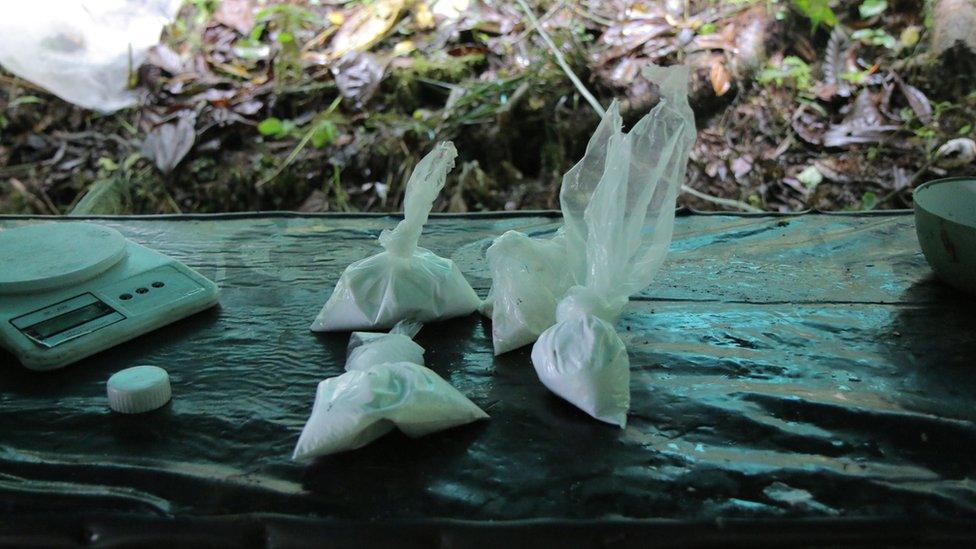
The NCA says a "large percentage" of the cocaine in the UK originates in Colombia
"Consumption of cocaine is still a major problem for the United Kingdom," said Steve Reynolds, the NCA's deputy director and head of international operations.
"We've got a large community of drug consumers and it does great harm to society, both in terms of health and in terms of feeding other forms of organised crime."
Mr Reynolds, who spent 12 years working in Colombia, said a "large percentage" of the cocaine trafficked into the UK originated in the South American country.
"If we can help through a partnership with the Colombian law enforcement agencies to deal with that problem here at source, then it's something that we feel that we should do," he said.
"We are here with a small team of experts, with resources to support our Colombian colleagues to work in operations against specific drug trafficking groups."
SAS trained
Beyond helping with intelligence gathering, the UK assists the Colombian anti-narcotics police with technical support and training.
The Jungla special commandos from the anti-narcotics police that raided the cocaine lab in Norte de Santander were originally trained by the UK's SAS in 1989.
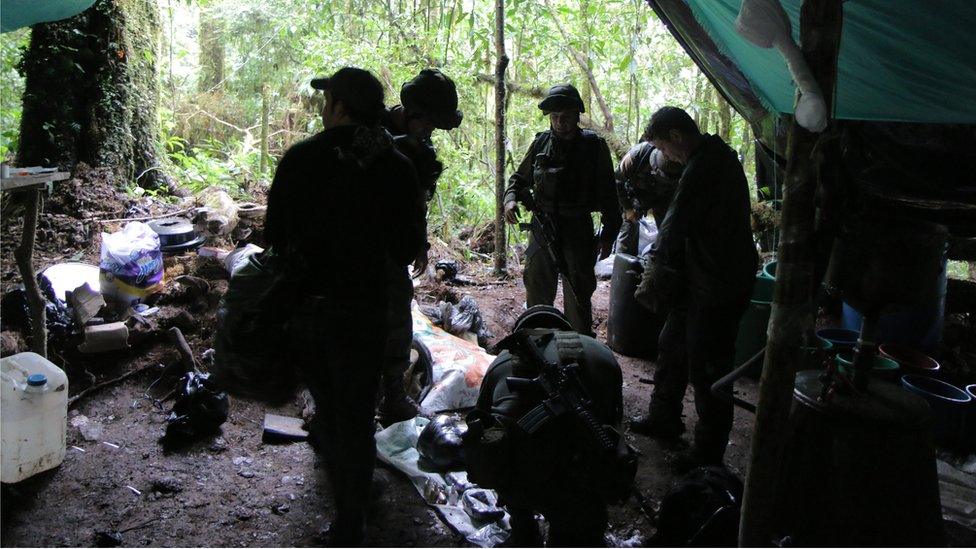
Colombian police believe they seize about half the cocaine produced in the country
British officers started operating on the ground in Colombia in the same year, first as British law enforcement, then in 2006 as the Serious and Organised Crime Agency, which was superseded by the NCA in 2013.
The UK's financial contribution to Colombia is much more limited than that of the US, which has put $10bn into Colombia's defence and security services over the past 15 years, according to Colombian government sources.
Having less spending power means the UK is much more strategic when choosing objectives and preparing operations.
The Colombian government says the British contribution to the fight against organised crime is invaluable, and that without its help, its officers would not be able to achieve the same results.
For its part, the NCA considers its working relationship with Colombia's anti-narcotics authorities one of the best it has in Latin America.
Profitable business
It is estimated that a highly pure kilo of cocaine costs about $1,500 (£1,000) before leaving a Colombian lab, but can reach as much as $50,000 (£33,000) when it arrives in the US or Europe.
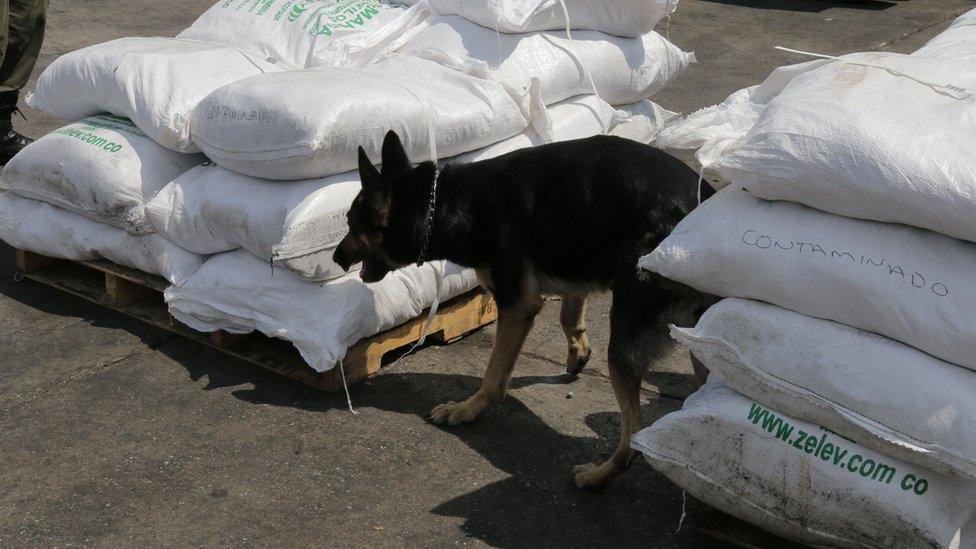
Traffickers use land, air and sea routes to smuggle cocaine out of Colombia
A British man, who was jailed for drug trafficking in Colombia and didn't want to be identified, said the money made the risk worthwhile.
"When you're talking about an average yearly salary of a normal working person in the UK... being earned in 24 hours, yes," he said. "If you're doing it in tonnes, even more yes."
The tonnes of cocaine leaving Colombia towards the US and Europe are sent through different routes, including Venezuela and the Caribbean and Pacific coasts, by land, air and sea.
Although coca cultivation in Colombia has dropped overall in the past 15 years, between 2013 and 2014 the planted area grew 44% to 69,000 hectares, according to the United Nations Office on Drugs and Crime, external - with the potential to produce of 442 tonnes of cocaine.
"Around 50% of the cocaine is seized and another 50% reaches international markets," says General Ricardo Restrepo, director of the Colombian police anti-narcotics division.
In the so-called "war on drugs", his force has lost 195 men since 2005 and 650 have been injured.
It is hard to fight a business as profitable as cocaine.
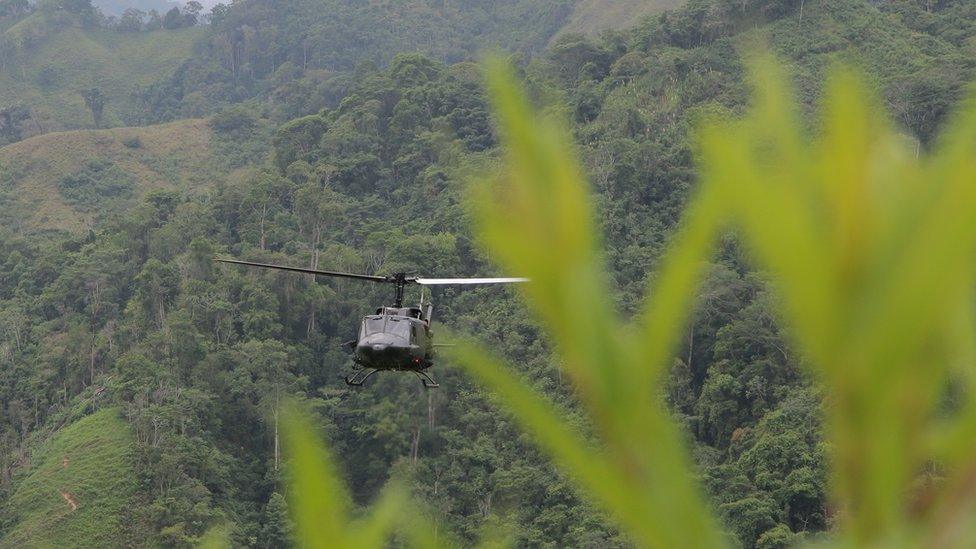
Colombia's president has suggested an alternative anti-drug strategy might be needed
And it seems that despite all the resources invested in fighting drug trafficking, they are unable to win.
In fact, Colombian President Juan Manuel Santos recently told the BBC "this war on drugs that was declared in the United Nations 40 years ago has not been won".
"If you are in a war for 40 years without winning, you need to sit down and think what other more effective things can be done," he said.
But Mr Reynolds believes fighting this uneven war is still worth it.
"By some carefully-targeted assistance, intelligence sharing and joint case work, we can have an impact which reduces that feeling of impunity and makes the trafficking organisations realise that they can't act without the feeling that they're going to be targeted by law enforcement," he said.
A longer version of this report will be broadcast at 22:00 GMT on Wednesday 9 December on the Ten o'clock news on BBC1 in the UK. It will be available on this website after that.
- Published2 July 2015
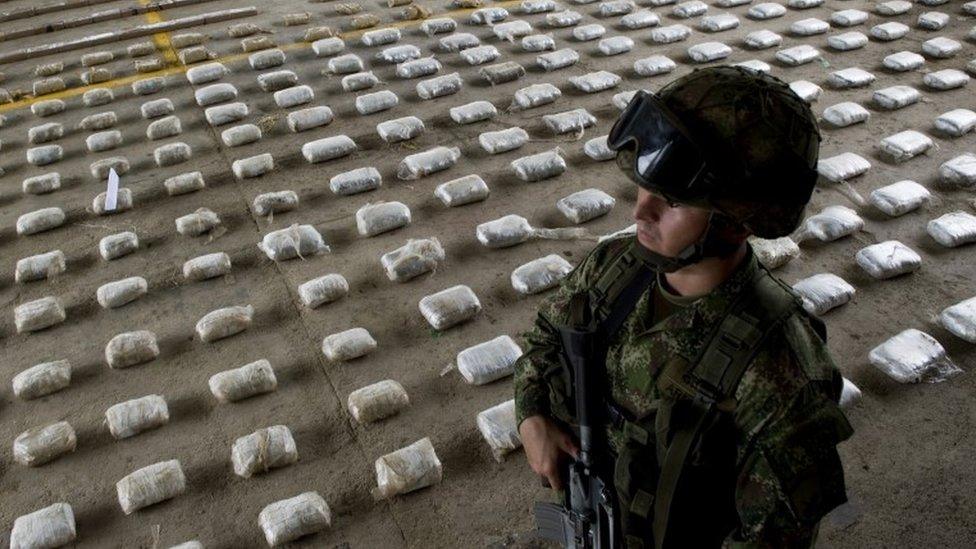
- Published14 February 2023
